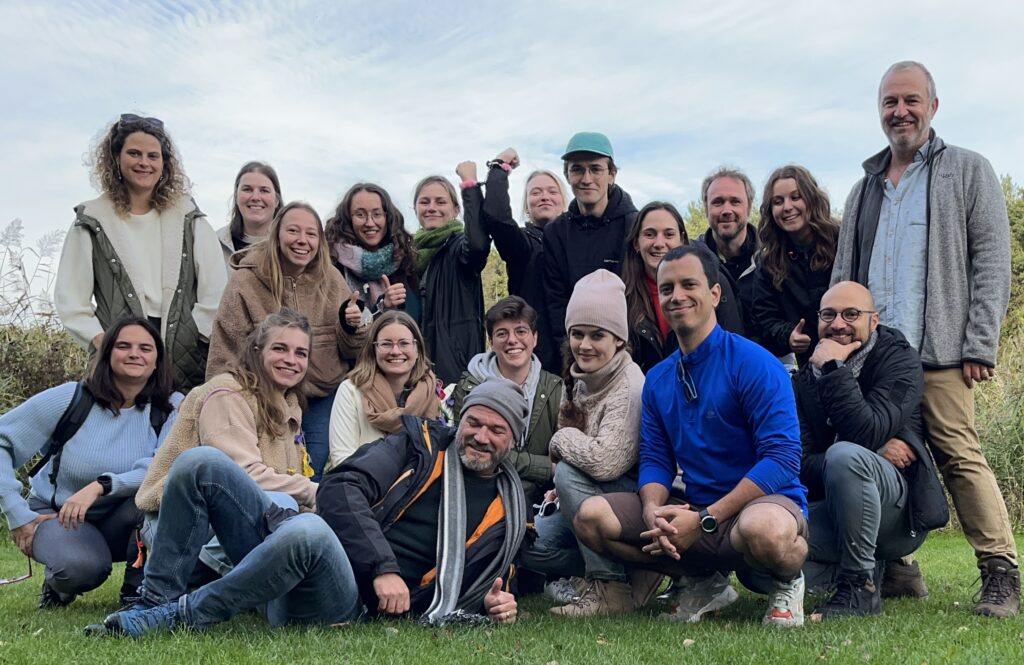
As we celebrate this International Women’s Day, we’re excited to highlight the incredible women researchers of the University of Antwerp Cell Death Signaling lab, led by Prof. Wim Vanden Berghe, Prof. Tom Vanden Berghe, and Prof. Andy Wullaert. Their research explores the complex molecular mechanisms underlying cell death processes in various diseases, offering hope for therapeutic advancements in conditions ranging from cancer to neurodegenerative disorders. This new lab is a recent fusion between the ferroptosis team (led by Prof. Tom Vanden Berghe), the epigenetics team (led by Prof. Wim Vanden Berghe) and the pyroptosis team (led by Prof. Andy Wullaert).
Saar Adriaensen: Determining the Role of Endothelial Cells in the Development of Arterial Media Calcification
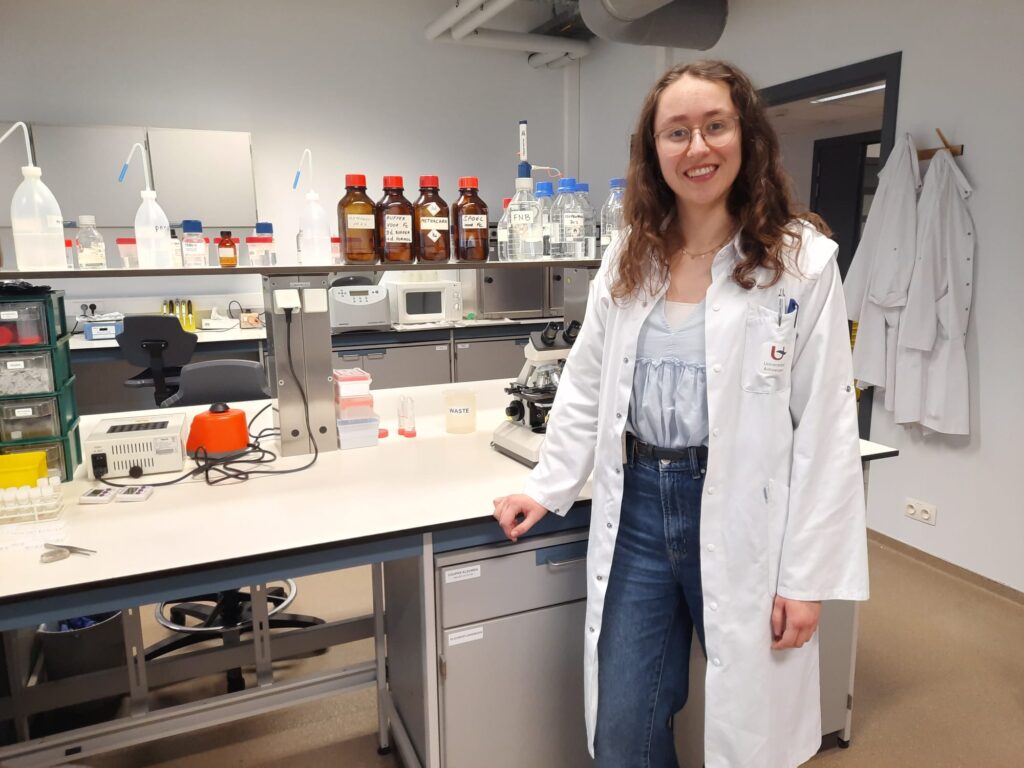
As a biochemist, I find myself fascinated by the complexity of life, especially at the lowest level of molecules and cells. So, I’m grateful that I have the opportunity to contribute to unraveling this complexity during my doctoral research. My Ph.D. project focuses on the role of endothelial cells in the development of arterial media calcification, a condition that significantly contributes to cardiovascular mortality in the aging population and in patients with chronic kidney disease and diabetes. By increasing our understanding of the underlying molecular pathways, we aim to explore the potential of these endothelial cells as therapeutic targets for the treatment of arterial media calcification.
During this first year of my Ph.D., I felt how valuable it is to be part of a strong team. Having supportive colleagues can make such a difference when facing the difficulties that are inherently part of a Ph.D. trajectory. I feel very lucky to be part of a lab with so many wonderful and talented women in science!
Amber Driesen: Deciphering the Epigenetic Landscape of Ferroptosis
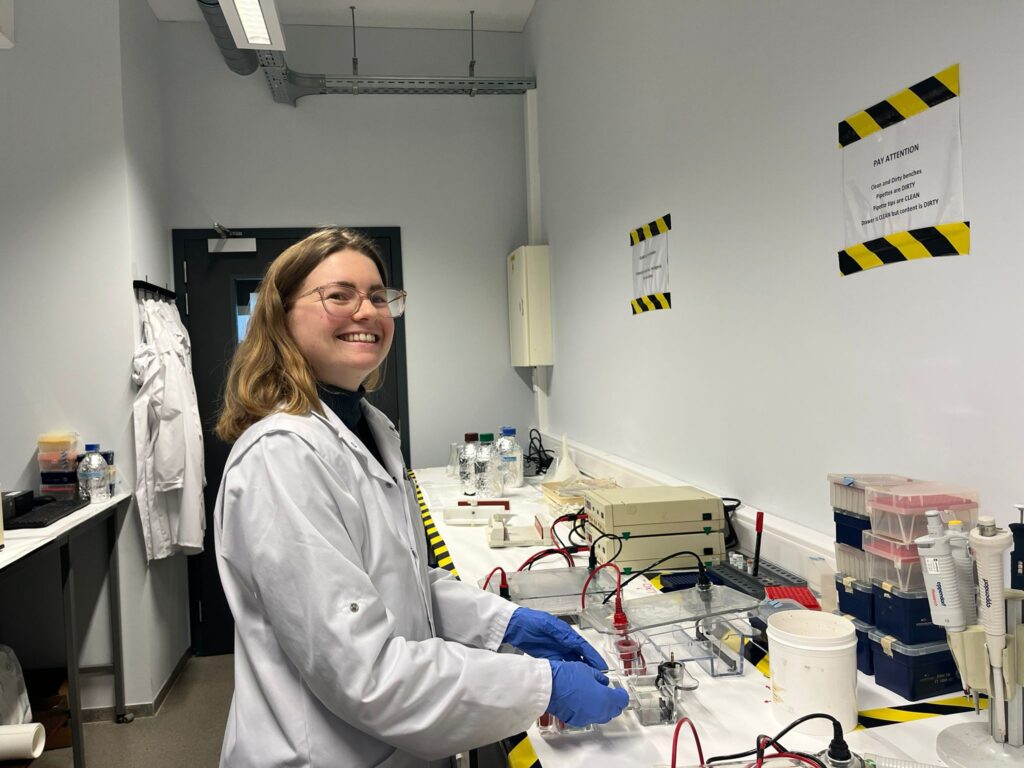
During my studies in Biochemistry and Biotechnology at the University of Antwerp, I always sought out knowledge gaps in all the courses I did. Now, as I’m working on my Ph.D. in Prof. Wim Vanden Berghe’s lab, I have the opportunity to continue this pursuit by unraveling the interplay of epigenetic regulation in ferroptosis. My focus lies on ferroptosis, an iron-dependent form of cell death, as a potential alternative treatment approach, with a specific emphasis on histone epigenetic regulation. Leveraging my background in biochemistry, I am exploring the intricate relationship between iron-regulated epigenetics at both the protein and cellular levels within this project. My ultimate goal is to advance our understanding of the ferroptosis process, potentially paving the way for innovative (epigenetic) treatment strategies for individuals with multiple myeloma. One of my greatest achievements to this day is obtaining a prestigious FWO fundamental research fellowship for this specific project.
I am thrilled to be a part of such a strong and dynamic (fe)male team in the Cell Death Signaling lab. Each team member brings their unique experience and expertise to the table. By collaborating and supporting each other, we can continuously push the boundaries of our scientific knowledge. The working atmosphere is truly inspiring to be a part of.
Astrid Vanden Branden: Determining Pathological Pathways in Arterial Calcification
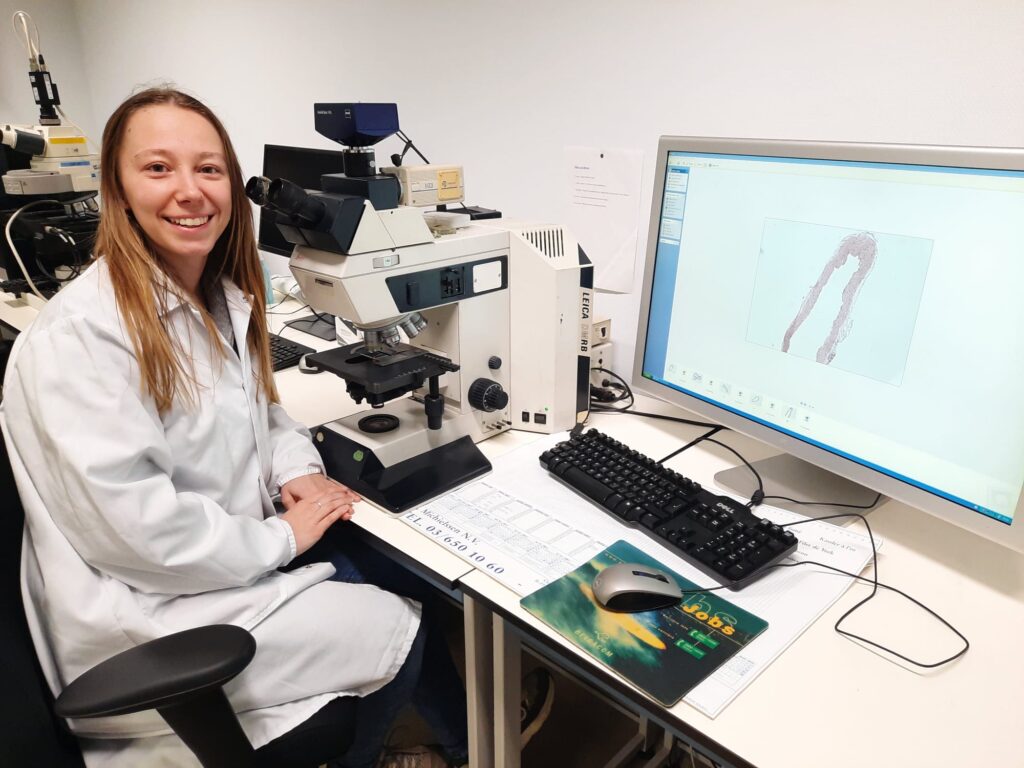
As a teenager, I envisioned myself as a future practicing physician. However, as my interests evolved, I found myself drawn more towards delving into human pathologies rather than providing clinical care. This realization inspired me to pursue studies in Biomedical Sciences, embarking on a journey to develop myself as a passionate researcher. During my academic journey, I participated in the University of Antwerp Honours College program, which provided me with the opportunity of doing two summer internships in the Cell Death Signaling lab. These experiences not only exposed me to the daily workings of a laboratory but also introduced me to the fascinating topic of arterial calcification for the first time. Despite encountering many intriguing research topics, my heart consistently drew me back to this lab for my master’s dissertation. I continued to extend my research journey during my Ph.D. Now, in the third year of my doctoral studies, I am fully immersed in unraveling the intricate pathological processes associated with arterial calcification, with a particular focus on lipid peroxidation and ferroptosis.
It needs to be recognized that “alone we can only do so little; together we can do so much”. I’m very proud to be part of a team of competent women researchers. I fervently hope that our ‘girlpower’ can further fuel impactful research!
Bregje Christiaenssen: Exploring the Immune System in Autoinflammatory Diseases
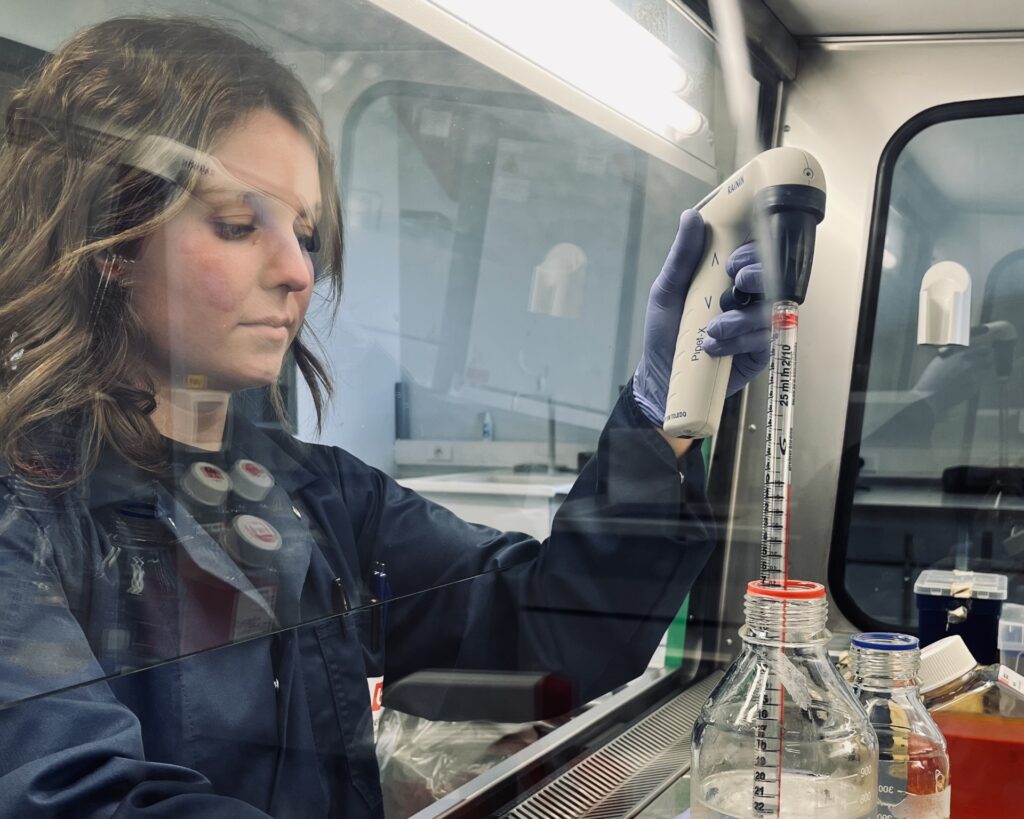
Since my high school years, I’ve been fascinated by science and knew that I wanted to work in this field. Upon beginning my studies in Biochemistry and Biotechnology, I swiftly discovered my interest in fundamental research, particularly in proteomics and the profound impact of minor mutations on a broad spectrum of diseases. As I gained hands-on laboratory experience, including several interesting internships at the University of Antwerp, my resolve to pursue a future in research only solidified. Moreover, I’ve long been fascinated by the intricacies of the immune system and how even the slightest deviations from its normal functioning can contribute to various disorders. Given these passions, I was thrilled to embark on my Ph.D. journey investigating the constitutive activation of the Nlrp3 inflammasome in cryopyrin-associated periodic syndromes (CAPS), a group of rare autoinflammatory diseases. Conducting my research project under the guidance of Prof. Andy Wullaert in the Cell Death Signaling lab, I aim to deepen our understanding of the underlying disease mechanisms, with the hope that our findings will extend beyond CAPS to inform the treatment of numerous chronic inflammatory conditions where Nlrp3 inflammasome responses are implicated. During the next years of my Ph.D. project, I also look forward to meeting other passionate scientists to build international scientific and friendship networks.
Dr. Britt Opdebeeck: Innovative Therapies for Arterial Calcification
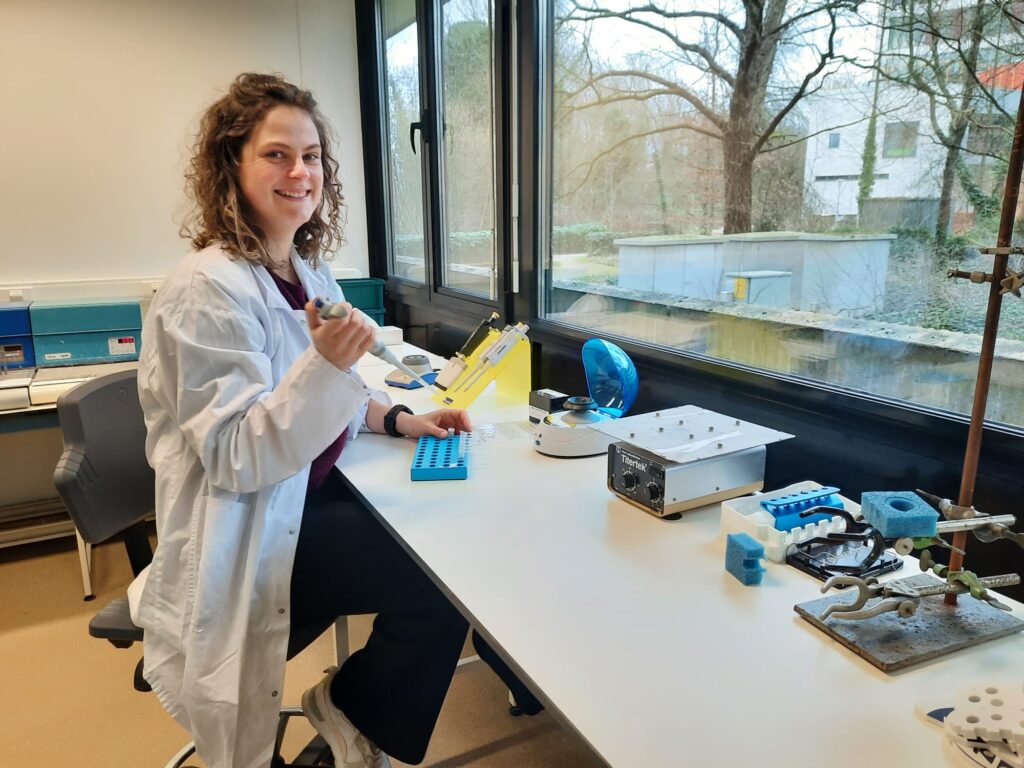
As a life scientist, I focus on developing innovative therapies against arterial media calcification, a major cardiovascular burden during aging and in patients with chronic kidney disease and diabetes. During my FWO Ph.D. mandate, I realized that finding efficient and safe therapies against arterial calcification is very challenging due to adverse effects on bone mineralization. However, this even increased my interest and curiosity in the search for the perfect treatment strategy for patients who suffer from arterial calcification. Especially since it has a major impact on patients’ quality of life and it also has a detrimental socio-economic impact on society. These past two years, I have continued my research under a junior post-doctoral FWO fellowship. I have achieved noteworthy progress in developing a nanoparticle drug delivery system designed to selectively target elastic fiber fragmentation, a well-known feature of arterial media calcification. Furthermore, this tool holds a broad applicability, as elastic fiber fragmentation is also evident in other diseases, such as chronic obstructive pulmonary disease (COPD) or certain cancers. I am grateful to pursue my passion as a dedicated scientist, contributing to better patient outcomes.
Dr. Emily Van San: Determining the Role of Ferroptosis in Multiple Sclerosis
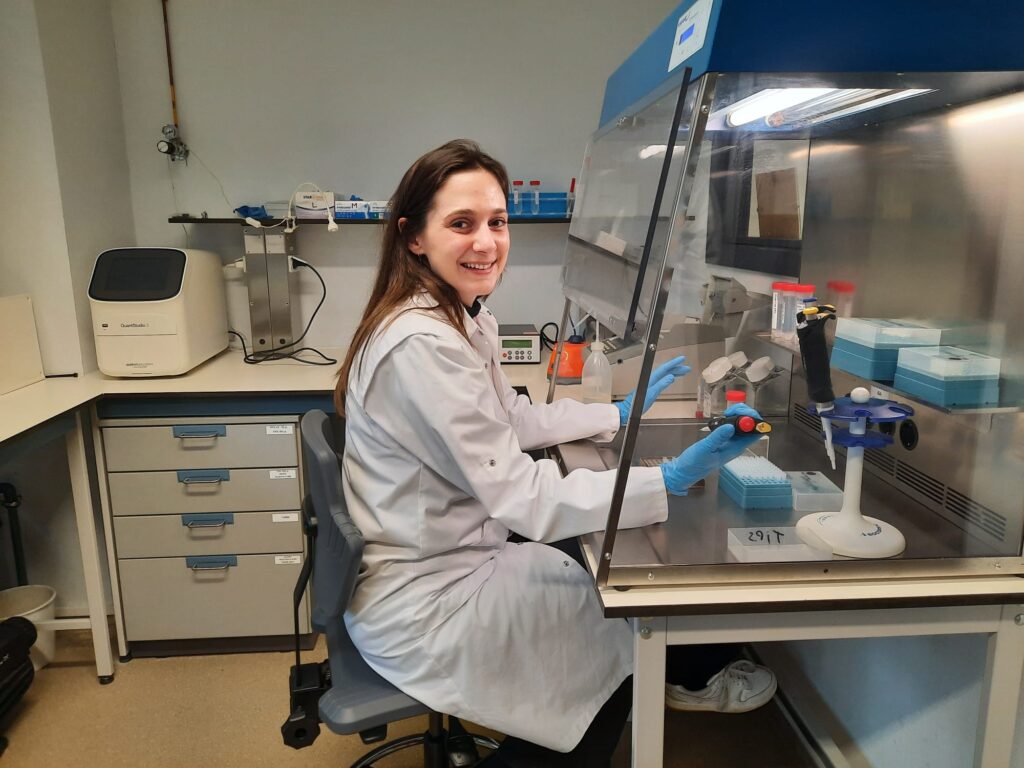
After completing my doctoral studies in Ghent, I embarked on an exciting new journey as a postdoctoral researcher at the University of Antwerp. Currently, my focus remains on exploring the role of iron-dependent cell death (ferroptosis) in multiple sclerosis.
My academic journey has equipped me with a diverse skill set, from conducting intricate laboratory experiments to analyzing complex data sets. However, what truly drives me is the opportunity to contribute to our understanding of debilitating neurodegenerative diseases like multiple sclerosis and to potentially pave the way for novel therapeutic interventions. Beyond the confines of the lab, my life is enriched by my role as a mother. Balancing the demands of academia with the joys of parenthood and nurturing relationships is a profoundly rewarding journey, one that continually enriches my life and shapes my perspective. I firmly believe that the most meaningful discoveries are not only made in the lab but also through the shared experiences and connections we forge along the way.
On this special day, I celebrate the achievements of women in science and eagerly anticipate continuing breaking barriers, making discoveries, and inspiring future generations of women researchers. Let’s continue to push boundaries and to pave the way for a more inclusive and innovative scientific community!
Geraldine Veeckmans: Advancing Ferroptosis Research for Successful Organ Transplantation
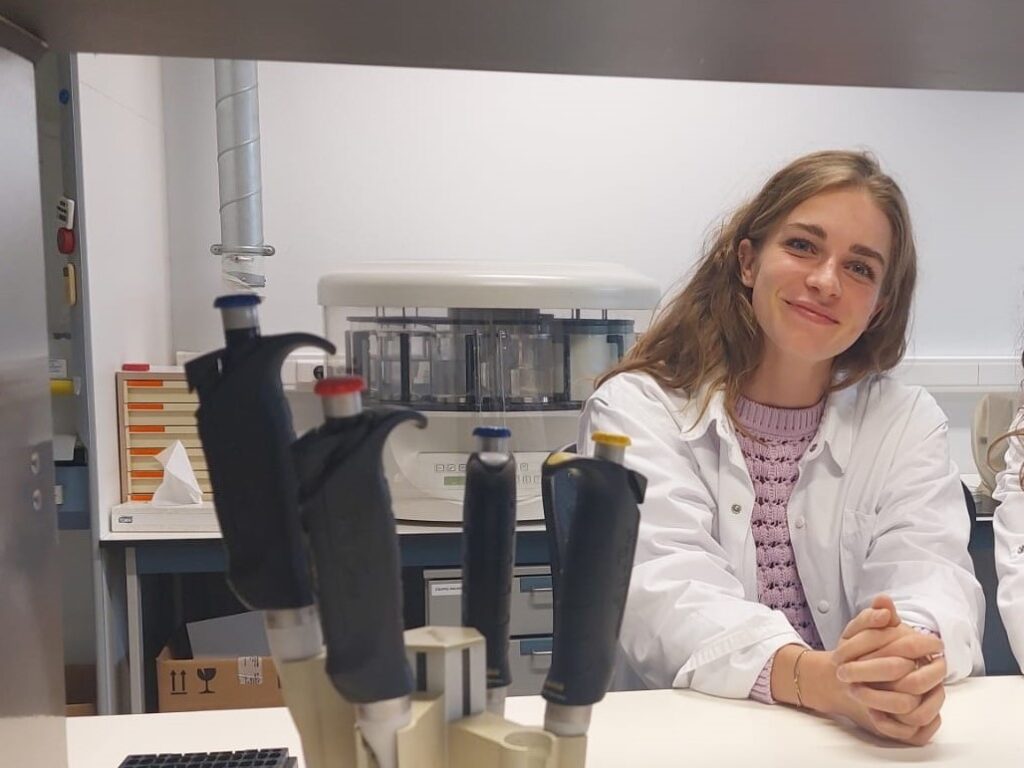
My academic journey as a pharmaceutical science student led me to discover a huge passion for chemistry, therapeutics, and science in general. Therefore, pursuing a Ph.D. project felt like a perfect continuation of my master’s degree and a unique opportunity to gain experience in the field that I’m interested in. Two years of work experience as a researcher in Prof. Wim Vanden Berghe’s lab made me realize that dedication, ambition and the willingness to take on new challenges are key to achieving goals. Personally, I consider receiving a Ph.D. fellowship for strategic basic research by the Research Foundation Flanders – FWO as one of my biggest accomplishments thus far.
In short, my research focuses on ferroptosis monitoring and targeting during lung ischemia-reperfusion injury. The adverse effects of ischemia-reperfusion injury, along with the shortage of suitable donors, mainly hinder the success of organ transplantation. With this project, we aim to take a big step forward towards the implementation of ferroptosis inhibitory strategies in the context of transplantation, which will hopefully help thousands of people awaiting a life-saving organ transplant in the future.
Ine Koeken: Developing a Nanoparticle to Make Tumors Sensitive to Ferroptosis Treatment
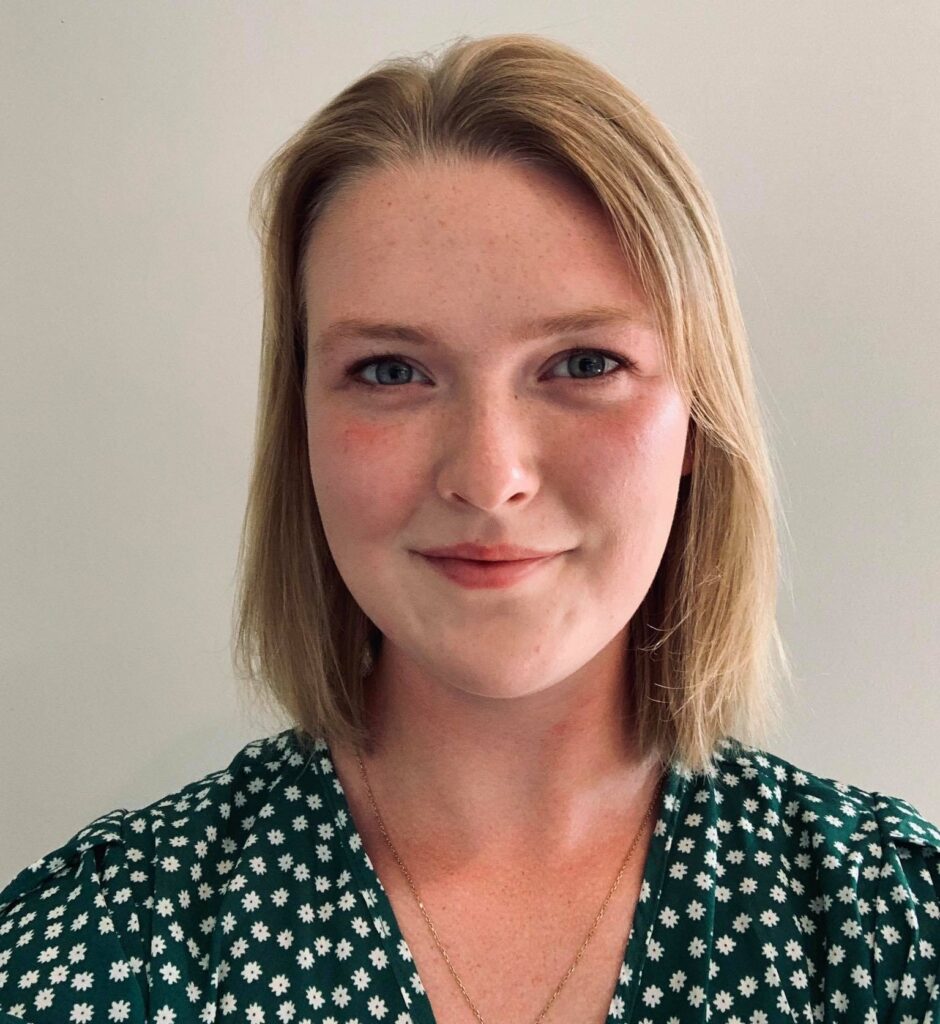
Early on in my studies, I developed a strong interest in oncological research. The stubborn and relentless character of cancer is what fascinates me. I can quite frankly say: “the bigger the challenge, the greater my energy and efforts”. After obtaining my Master in Biomedical Sciences at KULeuven, I started my Ph.D. in the Cell Death Signaling lab at the University of Antwerp. I’m developing a nanoparticle to make tumors sensitive to ferroptosis treatment. This nanoparticle can specifically attack the tumor and remodel its lipid composition, enhancing its susceptibility to ferroptosis-induced cell death. The cancer type that I’m studying is the paediatric cancer High-Risk Neuroblastoma. Taking a step forward in improving treatment for these young children truly fuels my motivation.
During the past three years of my Ph.D., I have had the opportunity to share my data at multiple international conferences, e.g. in Australia and Japan. Presenting your data to experts and peers feels both extremely daunting, yet fulfilling at the same time. As a young woman researcher I can only encourage other women in science to do the same. We, women, are no strangers to hard work, but putting ourselves out there is equally crucial! Let’s empower each other to assert our presence and amplify our voices in the scientific community.
Iuliana Vintea: Determining an Epigenetic Ferroptosis Signature for Cancer Therapy
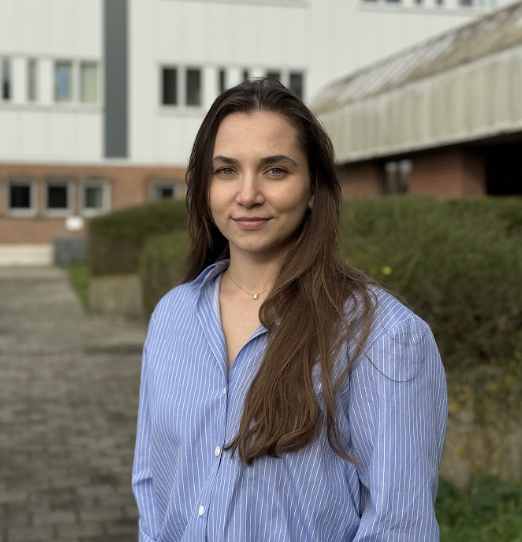
I pursued my studies in Bioscience Engineering at the University of Ghent. Following my master’s degree, I was fortunate to embark on a Ph.D. journey focused on ferroptosis, a promising avenue for cancer therapy. My Ph.D. aims to delineate an epigenetic ferroptosis signature and use it to develop a diagnostic tool for predicting ferroptosis sensitivity in cancer patients.
My motivation for this work is deeply rooted in both personal and professional aspirations. The opportunity to contribute to the fight against cancer, a global disease that affects countless lives, is a profoundly powerful driving force for me. Through my research, I am determined to make meaningful strides in advancing our understanding of ferroptosis and its potential application in cancer treatment.
Magali Walravens: Improving Diagnostic Methods for Ferroptosis
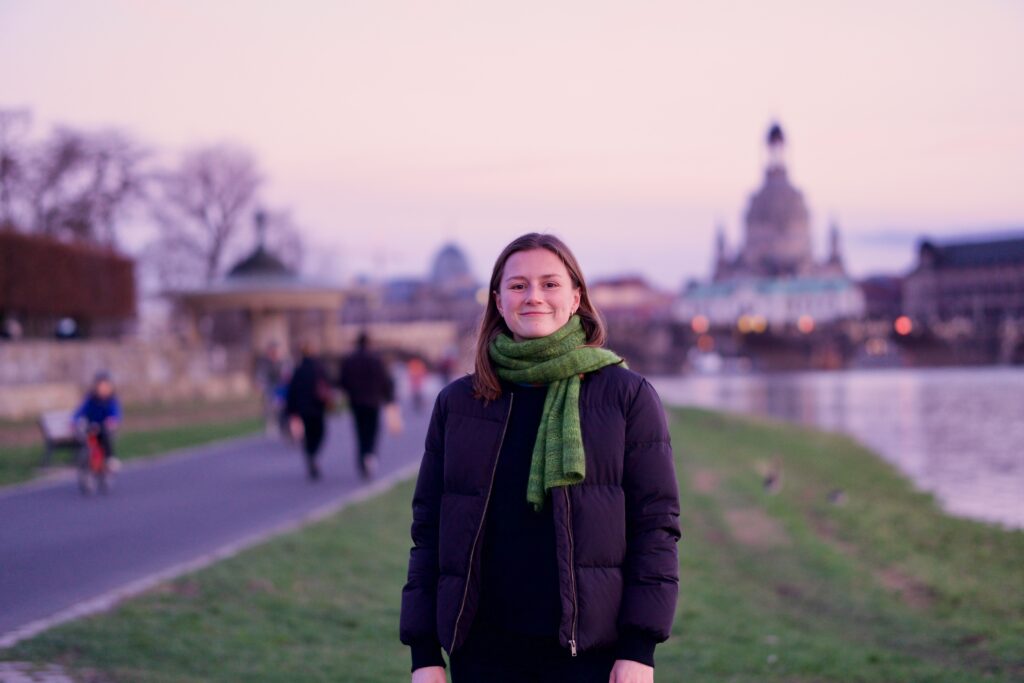
During my master’s program in Molecular Mechanisms of Disease at the University of Antwerp, I joined the Cell Death Signaling lab for my master’s thesis. Their research on ferroptosis, a form of biological rust, captivated me. I realized that the main challenge in ferroptosis research lies in its detection. Ferroptosis plays a detrimental role in multi-organ dysfunction (MODS), a complication that plagues critically ill patients. Yet, to bring ferroptosis inhibitors to the clinic, we need better and faster diagnostic tools to detect ferroptosis. The goal of my Ph.D. is to improve diagnostic methods for ferroptosis, focusing on one of its main characteristics: the oxidation of lipids in the cell. To do this, we needed a highly specialized technique called oxidative lipidomics, mastered by only a few labs in the world.
We proposed our idea to one of the world leaders in this technique, and I was invited by Prof. Maria Fedorova to join her team for one year at the University of Dresden. Living 800 km away in another country for so long seemed quite daunting to me. Yet, after just a month in her lab, my initial doubts and worries now seem insignificant. Similarly to the Cell Death Signaling lab, I’m among remarkable women and men in science who support each other and work together to bring knowledge to the next level. As a woman in science, I can only encourage others to seize every opportunity and relegate any doubts where they belong – in the 19th century.
